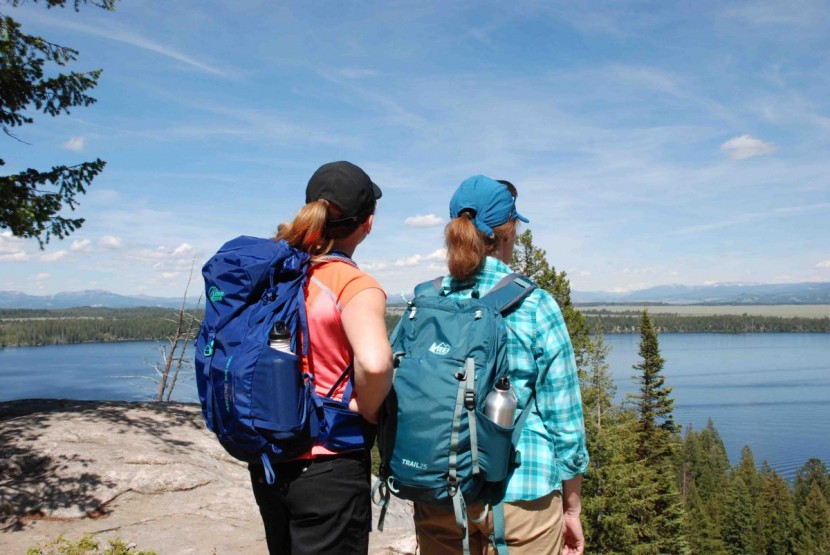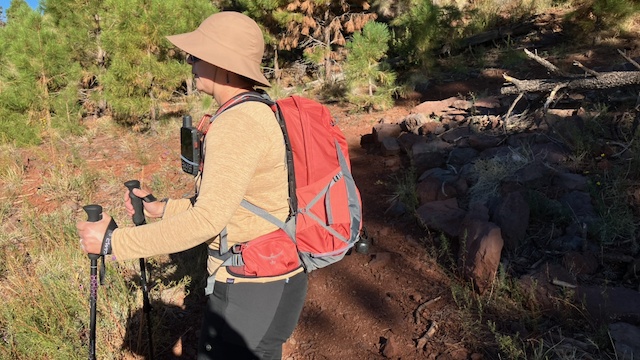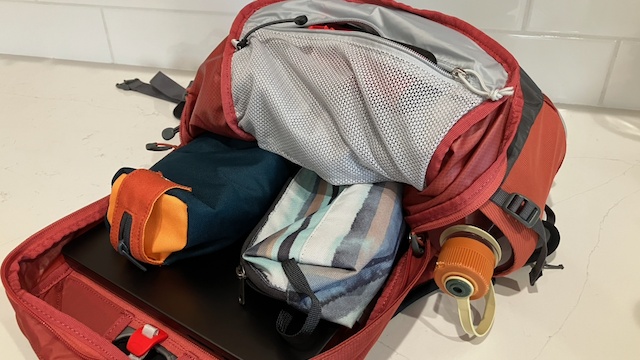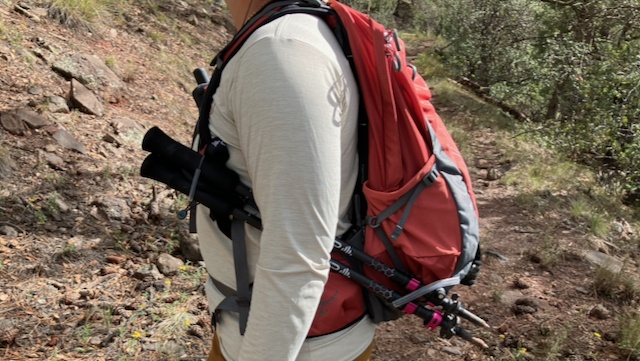We took our array of test packs and tested them over countless adventures. We hiked in the western United States, climbed Colorado's Fourteeners, bushwacked through desert scrub, went sightseeing in Iceland and Yellowstone, and more. After many days on the trail and countless miles, we scored each pack in each of our test metrics based on our experiences and side-by-side comparisons.
Comfort
To begin testing this metric, we went hiking and used each pack on long, short, and middle distance hikes, with both light and heavy loads. We kept notes on each one's comfort in relation to distance and load weight. We also examined each bag's padding (or lack of), hip belt, ventilation, and whether features or pressure points impacted our comfort. We also sweat tested, movement tested, and fit tested based on baseline parameters that are consistent across all daypacks.
Versatility
While hiking in each pack, we used and explored the usefulness of each pack's features.
Then we rated them both for the number of feature options available and how versatile they are for other activities that you may use a daypack for.
For example, we like the quick stow concept for trekking poles on Osprey models, but it wasn't comfortable while hiking over long distances. We found that zippered hydration compartments can serve as a laptop sleeve for commuting or travel, depending on your laptop size, thus increasing the pack's versatility.
Sometimes, less is more, as attaching extra gear to the pack's webbing can quickly become a Christmas tree of hiking gear.
Weight-to-Volume Ratio
We compared the weight of each pack and noted if the pack's listed volume matched how much we could place in it, as each manufacturer measures volume differently. For example, some packs listed with a smaller volume held as much as those listed with a few more liters of volume.
We also calculated each bag's weight-to-volume ratio. This measurement is how much the bag weighs in ounces per liter. To determine this, we divided the pack's measured weight by the manufacturer's listed pack capacity in liters.
We also explored how manufacturers are making packs lighter by using less padding and thinner materials, and whether those weight savings are worth it from a comfort and durability perspective. We evaluated the trade-offs between usefulness and comfort for those precious few ounces.
Ease of Use
To test and score this metric, we considered several factors. First, we gauged the overall usability of each bag and how easy the zippers and other features are to use. We filled them with our hiking essentials and scored how easily we could keep things organized and accessible.
Then we considered whether the packs are available in a single or multiple sizes. We also assessed adjustability features. Those with an adjustable torso, longer hip belts, and shoulder straps earned more points. Load lifter straps that helped support the load were also given due credit.
Construction Quality
There was no way we could get several years' worth of hikes on each pack during our test period. For this metric, we looked at how much wear and tear the pack showed during the months we used these bags and noted whether any features broke.
We also researched online user reviews for each pack and looked for patterns with durability issues, and compared the denier fabric of the pack and whether they had a double or thicker bottom or not. While a thicker material is not necessarily a sure sign of longer durability, in our experience, a thinner denier is more likely to wear through or catch a snag than a thicker one. In addition, we hosed each bag down for a full minute to compare water permeability.





